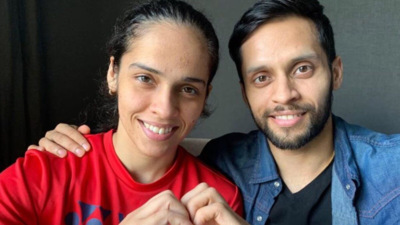Irregular sleep may raise risk of 172 diseases—including diabetes and kidney failure |

For years, health experts have warned that both too little and too much sleep could negatively affect well-being. But new research suggests the problem might not be sleep quantity alone, but how consistently and accurately people sleep. A massive seven-year study, published in Health Data Science on June 3, 2025, tracked nearly 90,000 adults using wearable fitness trackers. The findings show that irregular sleep patterns—not just total sleep time—are strongly linked to an increased risk of 172 diseases, including Parkinson’s, kidney failure, and Type 2 diabetes. Many health threats may begin silently, with poor sleep at the root.
Irregular sleep is more harmful than you think
The study revealed that many individuals who believed they were getting eight or more hours of sleep were actually sleeping much less—sometimes under six hours a night. These “false long sleepers” skewed earlier research that relied heavily on self-reporting. When researchers compared objective data with self-reports, the supposed dangers of sleeping “too much” mostly disappeared, pointing instead to irregular and inconsistent sleep as the real culprit behind rising health risks.
Disrupted rhythms in sleep linked to chronic conditions
Researchers used UK Biobank data and accelerometers to study sleep quality, duration, fragmentation, and timing. Led by Dr. Qing Chen from China’s Third Military Medical University, the team found that irregular and fragmented sleep patterns were linked to a broad array of diseases—172 in total. These included:
- 37% higher risk of Parkinson’s disease
- 36% higher risk of Type 2 diabetes
- 22% higher risk of acute kidney failure
Sleep disruption also tripled the risk of frailty in older adults and doubled the risk of developing gangrene.
Over 20% of disease cases could be preventable
One of the most striking findings was that optimal, consistent sleep could potentially prevent more than 20% of cases for 92 different diseases. These included not only well-known conditions like heart disease and stroke, but also lesser-known associations such as chronic obstructive pulmonary disease (COPD) and liver disorders.
Sleep timing and regularity matter more than just hours
While the traditional advice of sleeping 7–9 hours a night remains useful, this study emphasized that when you sleep and how consistent your schedule is may be even more important. People with erratic sleep times and inconsistent routines experienced significantly worse health outcomes—even if they logged enough total sleep hours.The researchers also identified biological markers that could explain the disease connection. Elevated levels of white blood cells and C-reactive protein were seen in participants with disrupted sleep—suggesting that chronic inflammation may be a major mechanism by which poor sleep contributes to disease.
A wake-up call for healthier sleep habits
Although the study is the largest of its kind, it was limited by a one-week data window and a predominantly White, healthy participant base. Yet even with these constraints, the findings held true across US-based NHANES data.The message is clear: irregular sleep can be dangerous, even if you think you’re getting enough rest. Maintaining a stable sleep schedule may be a powerful, underappreciated way to protect your long-term health.
var _mfq = window._mfq || [];
_mfq.push([“setVariable”, “toi_titan”, window.location.href]);
!(function(f, b, e, v, n, t, s) {
function loadFBEvents(isFBCampaignActive) {
if (!isFBCampaignActive) {
return;
}
(function(f, b, e, v, n, t, s) {
if (f.fbq) return;
n = f.fbq = function() {
n.callMethod ? n.callMethod(…arguments) : n.queue.push(arguments);
};
if (!f._fbq) f._fbq = n;
n.push = n;
n.loaded = !0;
n.version = ‘2.0’;
n.queue = [];
t = b.createElement(e);
t.async = !0;
t.defer = !0;
t.src = v;
s = b.getElementsByTagName(e)[0];
s.parentNode.insertBefore(t, s);
})(f, b, e, ‘https://connect.facebook.net/en_US/fbevents.js’, n, t, s);
fbq(‘init’, ‘593671331875494’);
fbq(‘track’, ‘PageView’);
};
function loadGtagEvents(isGoogleCampaignActive) {
if (!isGoogleCampaignActive) {
return;
}
var id = document.getElementById(‘toi-plus-google-campaign’);
if (id) {
return;
}
(function(f, b, e, v, n, t, s) {
t = b.createElement(e);
t.async = !0;
t.defer = !0;
t.src = v;
t.id = ‘toi-plus-google-campaign’;
s = b.getElementsByTagName(e)[0];
s.parentNode.insertBefore(t, s);
})(f, b, e, ‘https://www.googletagmanager.com/gtag/js?id=AW-877820074’, n, t, s);
};
function loadSurvicateJs(allowedSurvicateSections = []){
const section = window.location.pathname.split(‘/’)[1]
const isHomePageAllowed = window.location.pathname === ‘/’ && allowedSurvicateSections.includes(‘homepage’)
const ifAllowedOnAllPages = allowedSurvicateSections && allowedSurvicateSections.includes(‘all’);
if(allowedSurvicateSections.includes(section) || isHomePageAllowed || ifAllowedOnAllPages){
(function(w) {
function setAttributes() {
var prime_user_status = window.isPrime ? ‘paid’ : ‘free’ ;
var geoLocation = window?.geoinfo?.CountryCode ? window?.geoinfo?.CountryCode : ‘IN’ ;
w._sva.setVisitorTraits({
toi_user_subscription_status : prime_user_status,
toi_user_geolocation : geoLocation
});
}
if (w._sva && w._sva.setVisitorTraits) {
setAttributes();
} else {
w.addEventListener(“SurvicateReady”, setAttributes);
}
var s = document.createElement(‘script’);
s.src=”https://survey.survicate.com/workspaces/0be6ae9845d14a7c8ff08a7a00bd9b21/web_surveys.js”;
s.async = true;
var e = document.getElementsByTagName(‘script’)[0];
e.parentNode.insertBefore(s, e);
})(window);
}
}
window.TimesApps = window.TimesApps || {};
var TimesApps = window.TimesApps;
TimesApps.toiPlusEvents = function(config) {
var isConfigAvailable = “toiplus_site_settings” in f && “isFBCampaignActive” in f.toiplus_site_settings && “isGoogleCampaignActive” in f.toiplus_site_settings;
var isPrimeUser = window.isPrime;
var isPrimeUserLayout = window.isPrimeUserLayout;
if (isConfigAvailable && !isPrimeUser) {
loadGtagEvents(f.toiplus_site_settings.isGoogleCampaignActive);
loadFBEvents(f.toiplus_site_settings.isFBCampaignActive);
loadSurvicateJs(f.toiplus_site_settings.allowedSurvicateSections);
} else {
var JarvisUrl=”https://jarvis.indiatimes.com/v1/feeds/toi_plus/site_settings/643526e21443833f0c454615?db_env=published”;
window.getFromClient(JarvisUrl, function(config){
if (config) {
const allowedSectionSuricate = (isPrimeUserLayout) ? config?.allowedSurvicatePrimeSections : config?.allowedSurvicateSections
loadGtagEvents(config?.isGoogleCampaignActive);
loadFBEvents(config?.isFBCampaignActive);
loadSurvicateJs(allowedSectionSuricate);
}
})
}
};
})(
window,
document,
‘script’,
);
Source link



